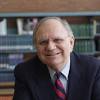How to vote in The us
2024 - 11 - 1Vote Like a Methodist: Will They Go Blue or Red?
Community Engagement - Political Discourse - United Methodists - US Elections - VotingCurious about how United Methodists in the U.S. might vote? Discover the insights gleaned from past voting trends!
Voting is the cornerstone of democracy, allowing individuals to express their preferences and shape the governance of their community. In the United States, voting patterns can vary widely, especially among different denominations and religious affiliations. With the upcoming elections stirring excitement and debate, one question arises: How will U.S. United Methodists vote? While it's impossible to predict individual choices, we can gain valuable insights by examining historical voting trends in counties where United Methodist churches are prominent.
Historically, United Methodists have shown diverse political preferences that reflect the communities they are part of. In more urban areas, United Methodists tend to lean towards progressive policies, advocating for social justice and equity. Conversely, in rural regions, the voting behavior may align more closely with conservative values, influenced by traditional community norms and economic concerns. This duality highlights the rich tapestry of beliefs within the United Methodist community across the United States, reminding us that faith can intersect with politics in many nuanced ways.
As we analyze past election data, particular counties reveal significant trends. In areas with a high concentration of United Methodist churches, voting patterns in presidential elections have often mirrored the broader national landscape. However, localized issues such as healthcare, education, and local governance can influence voter turnout and preferences. It will be fascinating to see how these factors play out in the next election cycle, especially as the social climate continues to evolve amidst ongoing discussions on critical issues.
In conclusion, the anticipation surrounding the upcoming elections is palpable, but so is the faith-based dialogue within the United Methodist Church. Engaging in community discussions and understanding differing viewpoints can enrich the voting process. Facts to ponder: Did you know that some churches organize gatherings to discuss electoral issues, and over 70% of United Methodists reported participating in the last election? This level of engagement not only emphasizes the importance of voting but also fosters unity within communities, regardless of political leanings.

How will U.S. United Methodists vote? | UMNews.org (UM News)
While there is no way to predict how members will vote, we can gain insights from voting results in counties where United Methodist churches are located.
Explore the last week
- 2025 - 02 - 15, 32 topics across 269 articles.
- 2025 - 02 - 14, 51 topics across 590 articles.
- 2025 - 02 - 13, 39 topics across 553 articles.
- 2025 - 02 - 12, 39 topics across 591 articles.
- 2025 - 02 - 11, 40 topics across 550 articles.
- 2025 - 02 - 10, 47 topics across 519 articles.
- 2025 - 02 - 09, 61 topics across 900 articles.